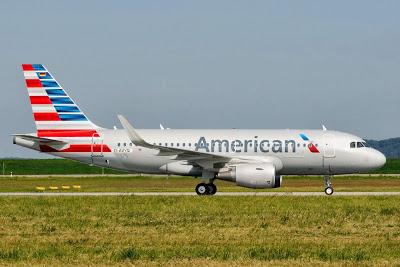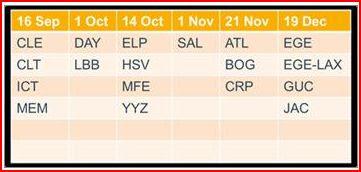
After transfer of title, the first aircraft will be ferried back across the North Atlantic with a one day, two leg profile. The first leg involves an eight hour flight from Hamburg to Bangor, Maine, where the aircraft is refueled and customs is cleared. The second leg of the journey will be a four hour flight from Bangor to DFW. Upon arrival at DFW, the aircraft will begin installation of final items, such as a Gogo WiFi system, placards and various warning/caution stickers. Final installations are then followed by FAA-required ground and flight demonstrations to ensure that American is prepared to operate the aircraft in revenue service. FAA ground demonstrations include a simulated ditching exercise and a mini evacuation. During these ground demonstrations, flight crew — pilots and flight attendants — must demonstrate that they have been properly trained to safely conduct a simulated ditching and separately, a simulated ground evacuation.
Next, the A319 will be used to provide actual flight time for Check Airmen and line pilots to meet pilot IOE time requirements. The A319 will visit stations that it will initially serve so that ground crews and gate agents can familiarize themselves with the new fleet. American will then be required to conduct proving flight demonstrations with the FAA onboard, which are representative of flying that will be conducted during actual revenue service. During these flights, the FAA will introduce simulated aircraft and medical emergency scenarios. The entire flight crew must demonstrate that they can bring the scenario to a successful conclusion, including a diversion to an alternate airport if necessary. All aspects of support, which includes Dispatch and Ground Station personnel, are exercised and must be capable of providing necessary provisions for the aircraft, passengers and crew.
The final phase prior to entry into service (EIS) involves additional flight time on the aircraft for CKA and line pilots. The first revenue flight for the A319 is scheduled for Sept. 16, 2013. Below is a preliminary list of the stations that will be supported by the A319.

